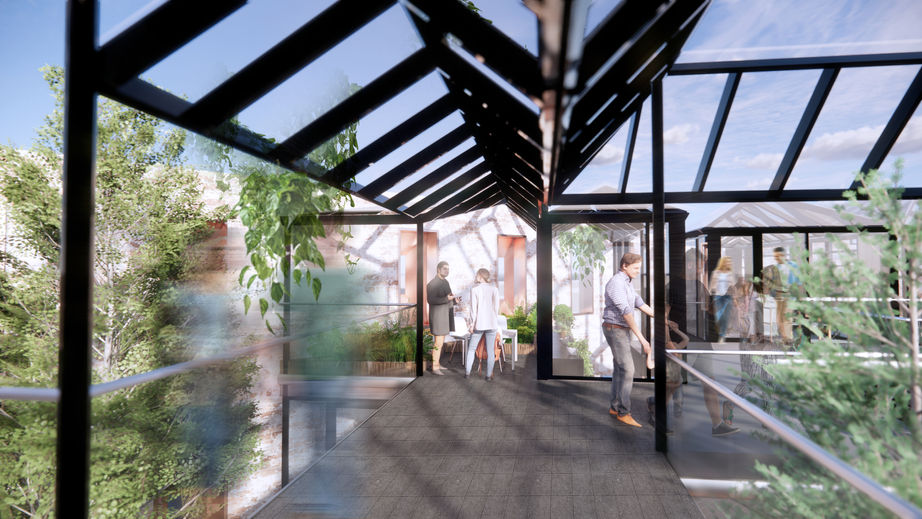Feeding
Collective Garden
Revitalising Ardwick through food, community, and shared traditions
September 2023- May 2024

Location: Ardwick, Manchester
Area : 1,472 m2
Project Background
Ardwick, a once-thriving industrial hub in Manchester, has experienced significant social fragmentation since the decline of the industrial era. As factories were abandoned, their decaying structures became overgrown with nature, revealing the scars of a bygone era. Despite its historical richness, Ardwick now faces a lack of social infrastructure and a pervasive sense of detachment among its residents. Public spaces feel uninviting, and community interactions are minimal, whether on the streets or in the parks.
The project began with interactions with the local neighbourhood and homeless individuals seeking refuge beneath scaffolding. These conversations highlighted a shared concern: food insecurity. Inspired by Manchester's "grit walk" narratives, including the "Pork Raiser" story of the industrial period, this project draws parallels between the past and present. During the industrial era, working-class families raised pigs in rented gardens to sustain themselves amidst the rapid population growth. Today, food insecurity remains a critical issue. In Greater Manchester alone, over 620,000 people, including 200,000 children, live in poverty, struggling to afford necessities like food.
This project seeks to address these challenges by reintroducing the historical narrative of self-sustenance into modern urban life. Through community gardens and collaborative food-focused activities, the proposal aims to tackle homelessness, enhance food security, and create a sense of belonging among Ardwick’s residents.
Project Concept

At its core, the project leverages food as a catalyst for community building, shared experiences, and social well-being. The adaptive reuse design transforms the site into a vibrant community garden, fostering connections through planting workshops, cultural cooking classes, and shared meals.
The garden encourages residents to grow plants integral to their cultural recipes by celebrating diverse culinary traditions. This practice brings people together to cook and share unique dishes, strengthens social ties, cultivates friendships, and reinforces a collective sense of belonging. Food becomes a unifying thread, connecting individuals of all ages, backgrounds, and walks of life.
The garden’s slanted allotment design aligns with the irregular mezzanine layout, maximizing natural light for optimal plant growth and providing a tranquil environment for mental well-being. Beyond aesthetics, the project actively addresses food insecurity by shortening the food supply chain and reducing the carbon footprint of food production. Locally grown produce ensures fresh, affordable, and nutritious food is available to the community, directly supporting those in need.
Through these initiatives, the transformed site becomes a lively hub where residents can engage in social activities, share their stories, and forge meaningful connections. This holistic approach not only enhances food security but also redefines Ardwick as a cohesive and thriving community, deeply rooted in the traditions and practices of its past while looking toward a sustainable future.
Feeding the homeless

Establish community-driven initiatives in gardening and cooking workshops to offer to those experiencing homelessness and establish a food bank for donations to mitigate food poverty.
Feeding Ardwick

Develop community gardens where residents can grow cultural vegetables and herbs, while sharing knowledge and experience. Offer affordable, locally grown produce to address food insecurity and enhance the community's access to food.
Feeding the community

Create an inclusive space that celebrates culinary traditions and enhances social interaction through engaged cooking. Residents can explore healthy eating while sharing cultural knowledge and creating meaningful connections.













